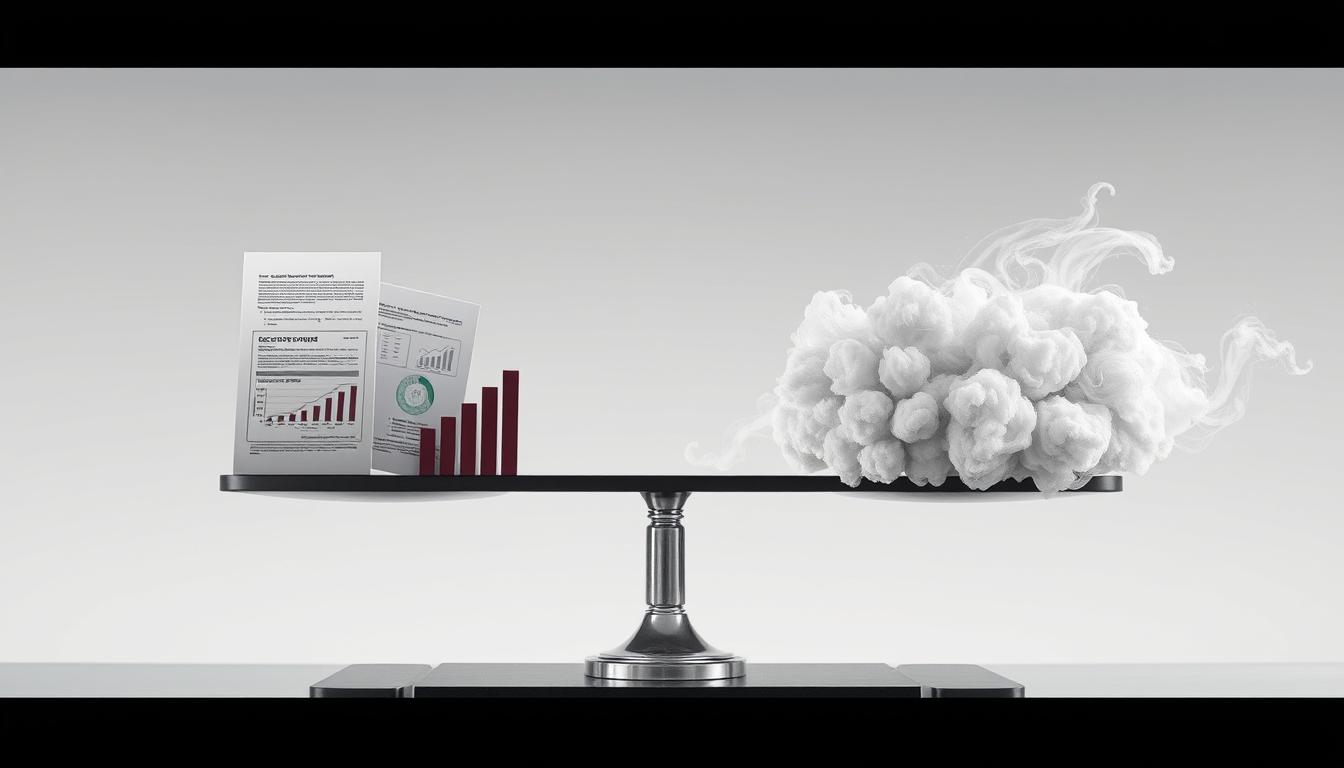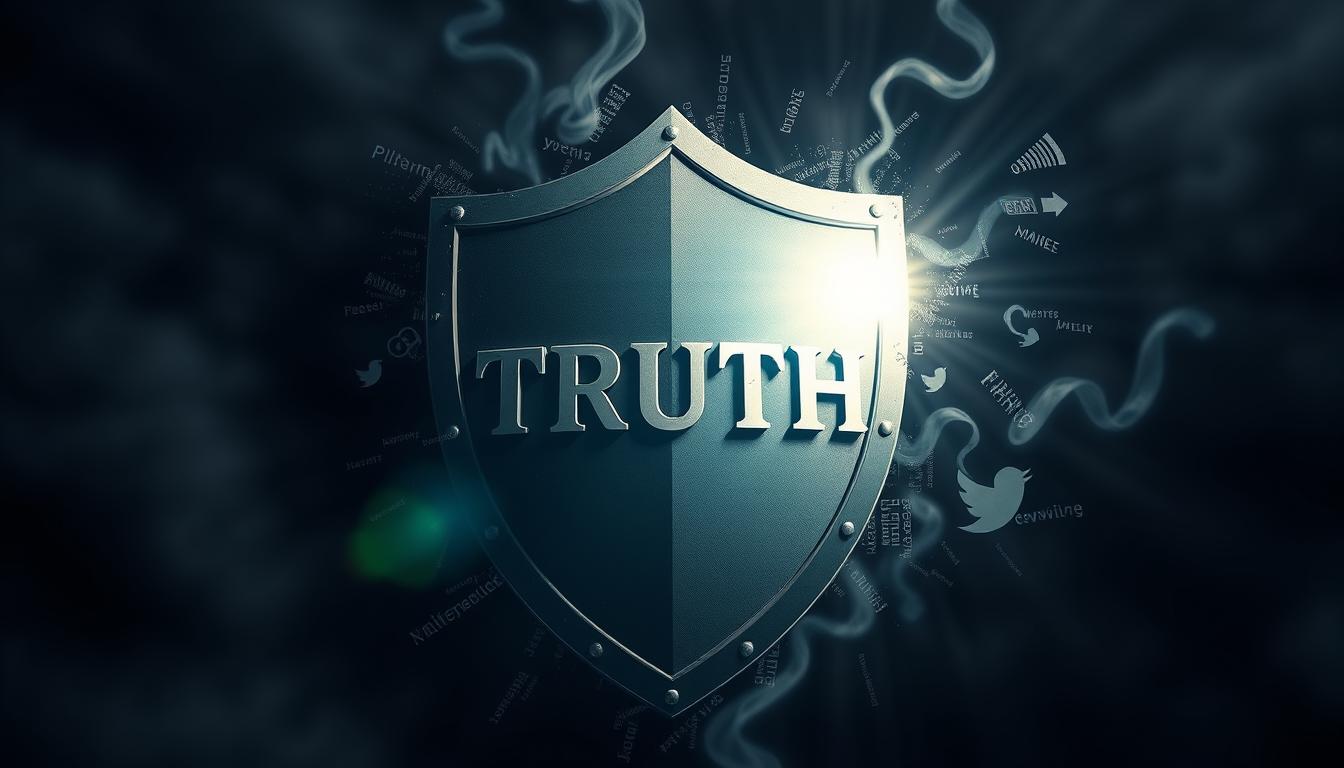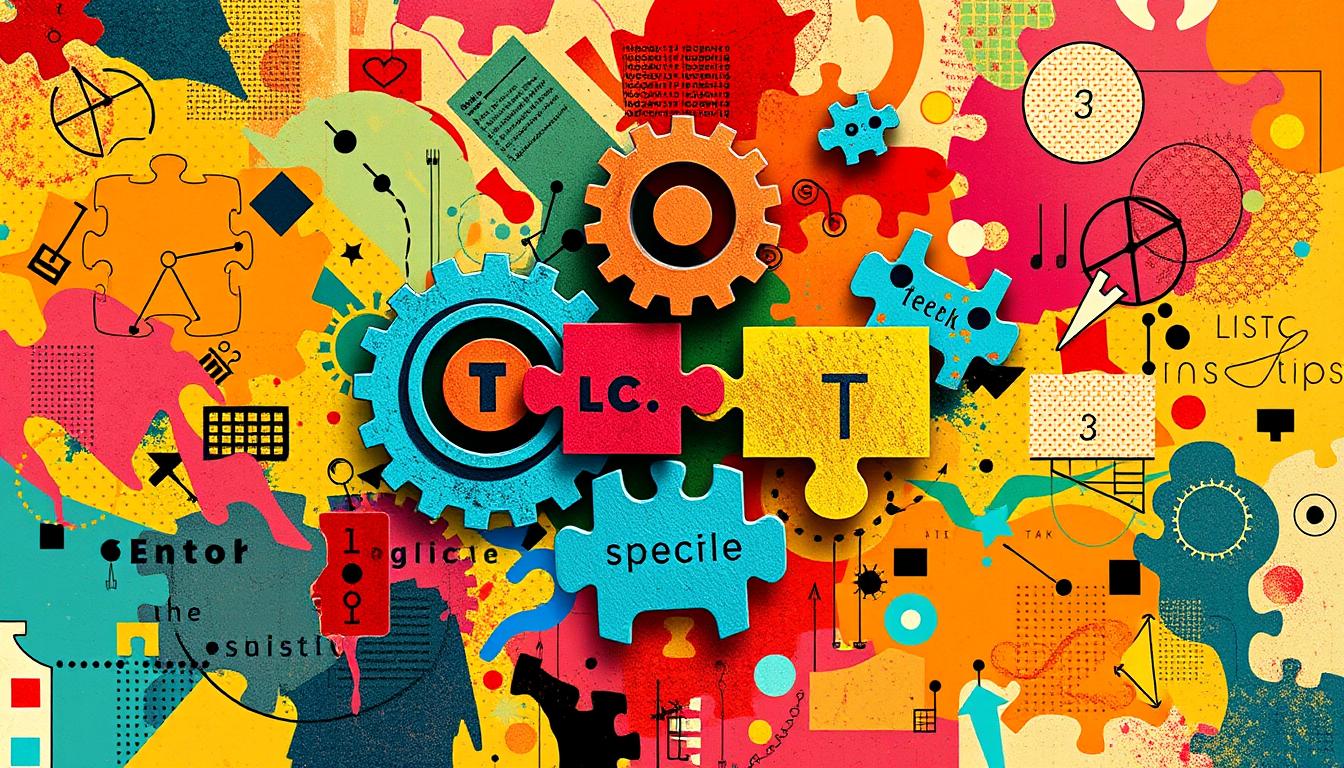Discerning fact from fiction is vital in our information-rich world. Factual disputing helps us navigate complex discourse and challenge misinformation. This guide explores techniques for evidence-based reasoning and misinformation debunking.
We’ll uncover tools for claim validation and truth verification. These skills are useful for concerned citizens, researchers, and critical thinkers alike.
Key Takeaways
- Discover the power of evidence-based reasoning in challenging misinformation and promoting truth.
- Develop the ability to effectively validate claims and verify the truthfulness of information.
- Learn the art of misinformation debunking and sharpen your fact-checking skills.
- Enhance your deception detection capabilities and navigate the complexities of modern discourse.
- Explore the principles of rumor mitigation and disinformation countering to protect the integrity of information.
The Importance of Evidence-Based Reasoning
Evidence-based reasoning is vital in factual disputes. It helps challenge misinformation and promote truth using credible information. This approach strengthens claims and encourages critical thinking and intellectual integrity.
Claim Validation and Truth Verification
Validating claims and verifying truth is crucial when facing conflicting narratives. Research and analysis help separate fact from fiction. This skill is essential in our age of rapidly spreading misinformation.
It ensures our understanding of the world is based on reality. Without it, our judgment can be clouded, leading us astray.
Misinformation Debunking: A Crucial Skill
Today’s digital landscape is full of misinformation, making debunking skills essential. Evidence-based reasoning helps identify flaws in arguments and expose biases behind falsehoods.
This approach empowers individuals and contributes to a more informed society. It allows us to champion truth effectively.
| Skill | Description | Benefits |
|---|---|---|
| Evidence-Based Reasoning | Grounding arguments in credible, verifiable information | Strengthens the validity of claims, fosters critical thinking, and promotes intellectual integrity |
| Claim Validation | Systematic process of research and analysis to separate fact from fiction | Ensures understanding is rooted in reality, combats the spread of misinformation |
| Misinformation Debunking | Leveraging evidence-based reasoning to identify flaws and biases in false narratives | Empowers individuals, contributes to a more informed and discerning society |

“The truth is incontrovertible. Malice may attack it, ignorance may deride it, but in the end, there it is.”
– Winston Churchill
Fact-Checking: The Key to Deception Detection
The digital age demands skill in spotting truth from fiction. Fact-checking is vital for verifying information and making informed choices. It’s a careful process that separates facts from deception.
Fact-checking involves examining sources, comparing data, and finding trustworthy information. This method helps people navigate online content and spot misleading narratives. It’s a powerful tool against deception.
Effective fact-checking includes several key steps:
- Source Evaluation: Assessing the credibility and trustworthiness of the information source, whether it’s a website, news article, or social media post.
- Data Verification: Corroborating claims and statistics with reputable and up-to-date data from multiple credible sources.
- Context Analysis: Examining the broader context surrounding the information to understand its relevance and potential biases.
- Cross-Referencing: Comparing the information with other reliable sources to identify discrepancies or inconsistencies.
Mastering fact-checking helps people become experts in deception detection. This skill is crucial in today’s information-rich world. It allows readers to make smart decisions and question false stories.
Fact-checking empowers individuals to contribute to a more transparent society. It’s a vital tool for navigating the complex world of information.
“The truth is incontrovertible. Malice may attack it, ignorance may deride it, but in the end, there it is.”- Winston Churchill
Rumor Mitigation: Stopping the Spread of Disinformation
The digital age has made it easier for disinformation and rumors to spread quickly. This poses a significant challenge to factual disputing. Effective strategies are crucial to combat false information and maintain credibility.
Credibility Assessment: Separating Fact from Fiction
Separating fact from fiction is vital in the era of disinformation. Evaluating the credibility of information sources is key to rumor mitigation. By examining source reliability, we can effectively identify and dismantle false narratives.
Some key factors to consider when assessing credibility include:
- Reputation and track record of the source
- Transparency in the source’s methodology and data
- Corroboration from multiple reputable, independent sources
- Absence of clear biases or conflicts of interest
Rigorous credibility assessment helps navigate the complex landscape of disinformation. It enables us to effectively counter the spread of rumors. This skill is essential in today’s information-rich world.

| Credible Source | Questionable Source |
|---|---|
| Reputable news outlets with established fact-checking practices | Unverified social media posts or anonymous online forums |
| Academic institutions and peer-reviewed research | Websites with a clear agenda or financial incentives |
| Government agencies and official public records | Unsubstantiated claims from unknown or biased individuals |
A careful, evidence-based approach to information consumption is key. It helps stop the spread of disinformation. This method maintains the integrity of factual disputing in our digital world.
Disinformation Countering: Protecting the Truth
The digital world faces a growing battle against disinformation. Factual disputing goes beyond refuting false claims. It’s about protecting truth and helping people make informed choices.
Cognitive biases play a key role in this fight. These mental shortcuts affect how we judge information. Recognizing these biases can improve our critical thinking skills.
Identifying and Addressing Cognitive Biases
Cognitive biases are mental shortcuts that shape our views and choices. They can make us accept or reject info based on non-factual reasons. Understanding these biases helps us think more critically.
- Confirmation bias: The tendency to seek out and interpret information that confirms our existing beliefs, while overlooking or discounting evidence that contradicts them.
- Anchoring bias: The reliance on the first piece of information encountered when making decisions, often leading to biased judgments.
- Availability heuristic: The tendency to judge the likelihood of an event based on how easily it comes to mind, rather than on objective probabilities.
Fighting disinformation requires many tools. These include fact-checking, source checking, and understanding our biases. A skeptical yet open mind helps us navigate complex info.

| Cognitive Bias | Description | Countering Strategies |
|---|---|---|
| Confirmation Bias | The tendency to seek out and interpret information that confirms our existing beliefs, while overlooking or discounting evidence that contradicts them. |
|
| Anchoring Bias | The reliance on the first piece of information encountered when making decisions, often leading to biased judgments. |
|
| Availability Heuristic | The tendency to judge the likelihood of an event based on how easily it comes to mind, rather than on objective probabilities. |
|
Recognizing and reducing cognitive biases helps us better counter disinformation. This approach, along with evidence-based reasoning, is key. It helps us navigate complex info and make smart choices.
Factual Disputing: A Comprehensive Approach
Factual disputing combines various strategies to challenge misinformation and promote truth. This approach helps navigate the complex information landscape and address falsehoods effectively. It ensures individuals can separate fact from fiction in today’s digital world.
The core of this approach is thorough validation of claims and verification of information. Rigorous fact-checking assesses source credibility and examines evidence. This process is crucial for debunking misinformation and identifying discrepancies.
Another key aspect is mitigating the spread of rumors and disinformation. Proactive measures, like correcting false narratives, prevent misleading information from spreading. This helps maintain the integrity of public discourse.
| Key Elements of Comprehensive Factual Disputing | Description |
|---|---|
| Claim Validation and Truth Verification | Thoroughly examining the evidence and evaluating the accuracy of information |
| Misinformation Debunking | Identifying and correcting false or misleading claims |
| Rumor Mitigation | Proactively addressing and stopping the spread of unverified information |
| Credibility Assessment | Evaluating the trustworthiness and reliability of sources |
| Cognitive Bias Identification | Recognizing and addressing the influence of cognitive biases on decision-making |
The comprehensive approach also highlights the importance of critical thinking and open-mindedness. A skeptical yet inquisitive mindset helps challenge assumptions and engage in constructive dialogues. This leads to a deeper understanding of complex issues.
This approach is a powerful tool against misinformation. It enables individuals and organizations to defend truth effectively. Ultimately, it promotes a more informed and engaged society.

The Role of Critical Thinking in Factual Disputing
Effective factual disputing needs strong critical thinking skills. A skeptical yet open-minded mindset is key when checking facts. This approach helps navigate the complex world of fact-checking and truth-finding.
Developing a Skeptical Yet Open-Minded Mindset
To master factual disputing, cultivate a skeptical yet open-minded outlook. This means questioning information’s validity and reliability. It also involves seeking evidence to challenge your own beliefs.
Stay open to new ideas, even if they clash with what you know. Engage in respectful talks to understand different views better.
- Questioning the validity and reliability of information, rather than accepting it at face value
- Actively seeking out supporting evidence and counter-arguments to challenge one’s own beliefs
- Remaining receptive to new information and perspectives, even if they conflict with preexisting notions
- Engaging in respectful and constructive dialogue to better understand differing viewpoints
This balanced approach helps uncover truth and make smart choices. It allows for a nuanced view of complex issues.
“The foundation of critical thinking is the ability to question, to analyze, and to evaluate information in a clear and open-minded manner.” – Unknown
Blending a skeptical yet open-minded mindset with solid critical thinking is powerful. It gives you tools for factual disputing. This combo promotes informed, evidence-based discussions.
Ethical Considerations in Factual Disputing
Factual disputing involves complex ethical challenges. Debunking misinformation is crucial, but it must respect privacy and intellectual property rights. Balancing these elements is key to effective fact-checking.
Respecting Privacy and Intellectual Property
Protecting personal information is vital when fact-checking claims. Sharing private details without consent can erode trust and credibility. It’s crucial to handle sensitive data responsibly.
Intellectual property rights must also be considered. Using copyrighted material without permission can cause legal issues. Fact-checkers should balance effective communication with respecting others’ rights.
| Ethical Consideration | Best Practices |
|---|---|
| Privacy |
|
| Intellectual Property |
|
Upholding these ethical principles is essential for factual disputers. It helps maintain trust and respect from the audience. This approach ensures effective challenges to misinformation while preserving integrity.
“Factual disputing is not just about uncovering the truth; it’s about doing so in a way that respects the rights and dignity of all involved.”
Collaborative Fact-Checking and Collective Intelligence
Factual disputing works best when done together. Collective intelligence helps us fight false narratives and unreliable claims. By joining forces, we can strengthen our defense against misinformation.
Collaborative fact-checking combines knowledge, resources, and analytical skills. This approach makes verifying information more thorough and reliable. Diverse perspectives enhance the accuracy of fact-checking efforts.
Fact-checkers, researchers, and citizens can team up to verify sources. They scrutinize evidence and reach informed conclusions together. This shared responsibility helps maintain information integrity.
Collective intelligence taps into the wisdom of diverse groups. Each person brings unique experiences and insights. This leads to better understanding of complex issues.
Together, we can create a more informed society. These tools help us seek, protect, and preserve the truth. Our combined efforts make us stronger against misinformation.
Conclusion: Embracing Factual Disputing for a Better World
Factual disputing has great potential to shape a more informed society. It uses evidence-based reasoning, fact-checking, and collaborative intelligence. These tools help us navigate the complex landscape of information and misinformation.
The principles discussed serve as a roadmap for engaging in factual disputing. They cover validating claims, debunking misinformation, and addressing cognitive biases. This approach empowers us to become more discerning information consumers and sharers.
Embracing factual disputing means developing a critical and open-minded outlook. We must question, verify, and work together to find the truth. This practice builds a society more resistant to disinformation’s harmful effects.
Our shared knowledge and ethical thinking can shape a brighter future for everyone. By using these tools, we can create a world grounded in truth and understanding.

